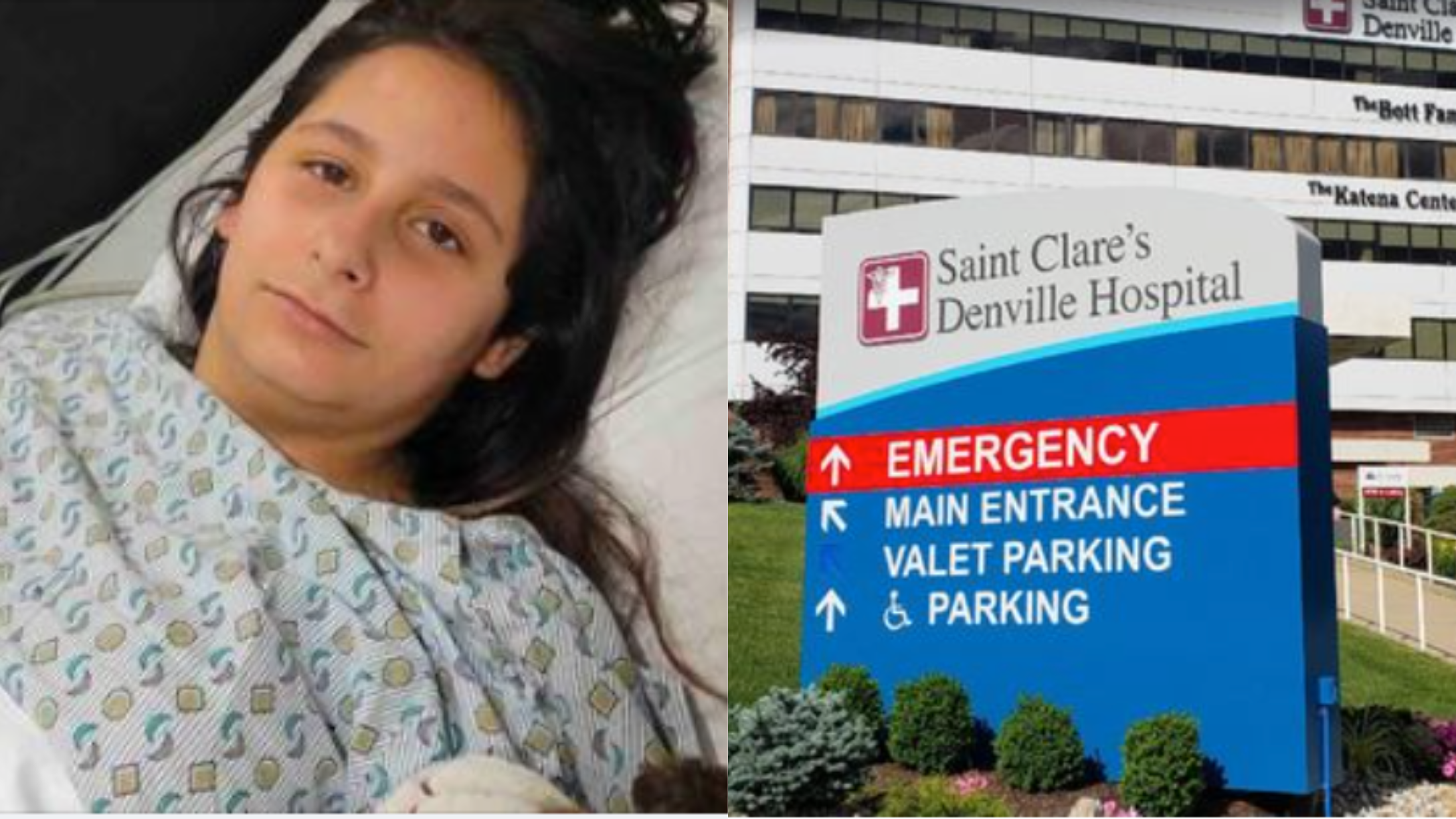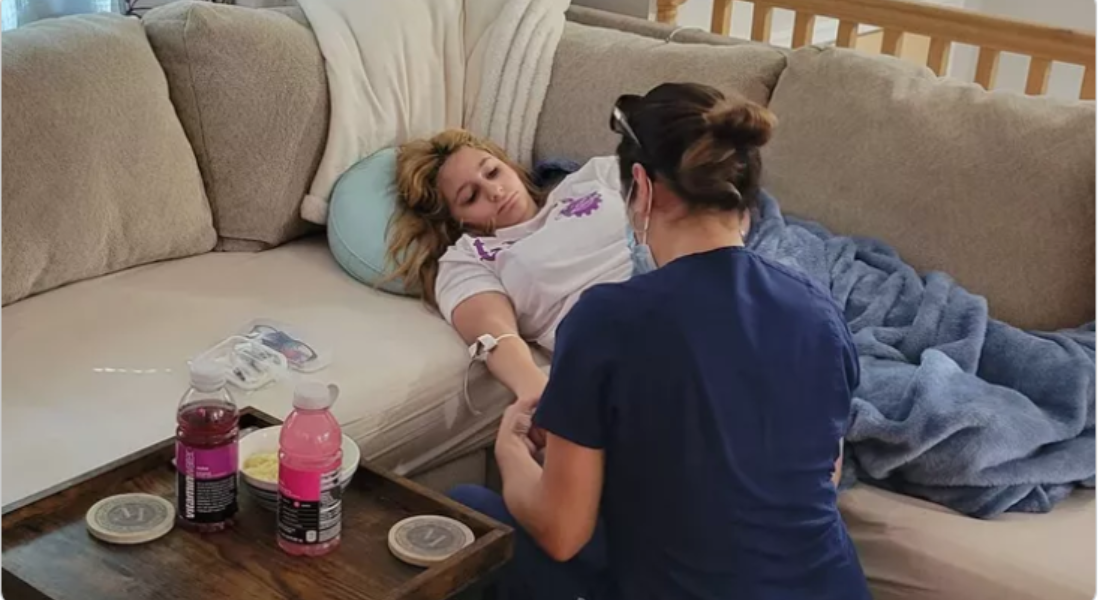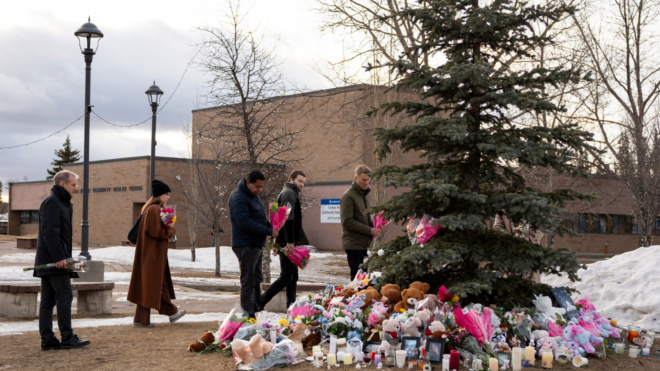
A 13-year-old girl in New Jersey who was previously healthy mysteriously suffered three seizures in a short period of time. She was told by her doctor her illness was “all in her mind" and was diagnosed with anxiety, per NJ.com. She had to fight to regain her mobility after her first seizure and a seven-day hospital stay. But it turns out that it wasn't anxiety at all. She actually had a rare condition that affects only 1 in 100,000 people.
The teen’s parents had to take her to a different hospital to be treated by another doctor before they finally received the correct diagnosis. The girl was previously being treated with antidepressants because of the original anxiety diagnosis. Her story is a harrowing one that highlights the issue of medical gaslighting of women and girls, as well as people from underrespresented communities, that is prevalent in the US.
More from CafeMom: Teen YouTube Sensation with Rare Genetic Disease Dies at 15
The girl's health began to decline in March 2022.
Lili Manzo, a teen living in New Jersey, was only 13 years old when she suffered her first seizure in March 2022. She was reportedly riding in the back of the car with her mother when she felt overcome with nausea. She turned pale and quiet and was unable to speak, Insider reported.
Describing the incident, Manzo said, “It’s like I was there, but I couldn’t do anything about it," according to NJ.com. Sadly, this was only the beginning.
Doctors misdiagnosed her.
After a seven-day hospital stay at Morristown Medical Center after her first seizure, Manzo was dismissed without a proper diagnosis. She had to fight to regain mobility in her hands and legs and relearn how to use her voice, reported Insider. It took another month before Manzo received an accurate diagnosis.
During her first hospital stay, Manzo had an MRI and an electroencephalogram, or EEG, to check for any brain abnormalities. Both came back clean. According to Manzo’s mother, however, her braces were blocking part of the image that doctors ignored. She was discharged after regaining mobility and given antidepressants. Her doctor allegedly told her the illness was “all in her mind” reported NJ.com.
More from CafeMom:Toddler dies after 'constipation' turns out to be cancer
Two doctors told her she had ‘anxiety.'
Manzo suffered another seizure only a month later. A second neurologist confirmed the teen's symptoms were anxiety related and increased her antidepressant prescription. According to Manzo’s parents, the doctor recommended that they not bring Manzo back to the ER after her seizures because it could “over-medicalize her condition," according to Insider.
It took a new doctor at a new hospital for the teen to receive the right treatment and diagnosis.

It turns out that Manzo’s symptoms and illness were not all in her “mind,” but receiving the correct diagnosis and treatment required her parents to take her to a different hospital to be seen by another doctor. When Manzo had her third seizure only a week later, her parents took her to the emergency room at Saint Clare’s Denville Hospital in Morris County, where a pediatric neurologist finally took her symptoms seriously, according to Insider.
Manzo received the diagnosis of seronegative autoimmune limbic encephalitis from Dr. Jeffrey Kornitzer after having a spinal tap, Insider noted. It's a type of brain inflammation that is very rare in which the body’s immune system mistakenly attacks the brain. Only one in 100,000 people is diagnosed with it, according to the Children's Hospital of Philadelphia. Manzo is slowly recovering after receiving intravenous immunoglobulin therapy from Kornitzer.
Her story highlights the problem of 'medical gaslighting' that girls and women often experience.
It's an urgent and often prevalent issue in health care, with female patients' symptoms not being taken seriously because of their gender and gender biases and stereotypes.
Though Manzo is finally starting to recover after receiving the correct treatment and diagnosis, it took much longer than it should have to get there.
“Sometimes I’m really tired, and it doesn’t matter how much sleep I get — I’m still tired. And sometimes I’m emotionally not there. Like I get random bursts of anger and sadness. My emotions are like waves," she told NJ.com.



